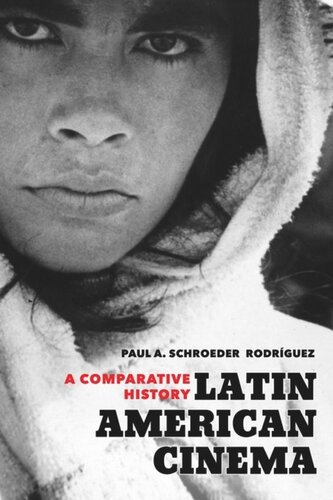

Most ebook files are in PDF format, so you can easily read them using various software such as Foxit Reader or directly on the Google Chrome browser.
Some ebook files are released by publishers in other formats such as .awz, .mobi, .epub, .fb2, etc. You may need to install specific software to read these formats on mobile/PC, such as Calibre.
Please read the tutorial at this link: https://ebookbell.com/faq
We offer FREE conversion to the popular formats you request; however, this may take some time. Therefore, right after payment, please email us, and we will try to provide the service as quickly as possible.
For some exceptional file formats or broken links (if any), please refrain from opening any disputes. Instead, email us first, and we will try to assist within a maximum of 6 hours.
EbookBell Team

5.0
90 reviewsThis book charts a comparative history of Latin America’s national cinemas through ten chapters that cover every major cinematic period in the region: silent cinema, studio cinema, neorealism and art cinema, the New Latin American Cinema, and contemporary cinema. Schroeder Rodríguez weaves close readings of approximately fifty paradigmatic films into a lucid narrative history that is rigorous in its scholarship and framed by a compelling theorization of the multiple discourses of modernity. The result is an essential guide that promises to transform our understanding of the region’s cultural history in the last hundred years by highlighting how key players such as the church and the state have affected cinema’s unique ability to help shape public discourse and construct modern identities in a region marked by ongoing struggles for social justice and liberation.